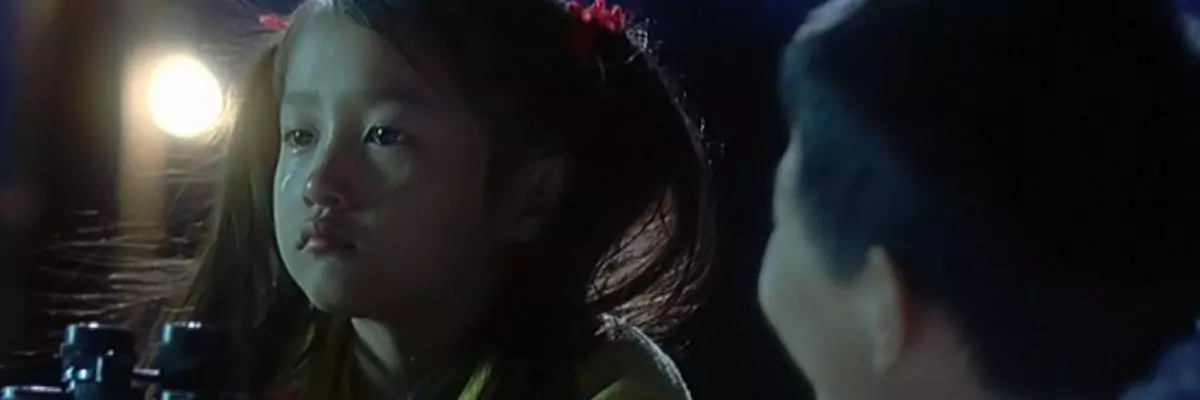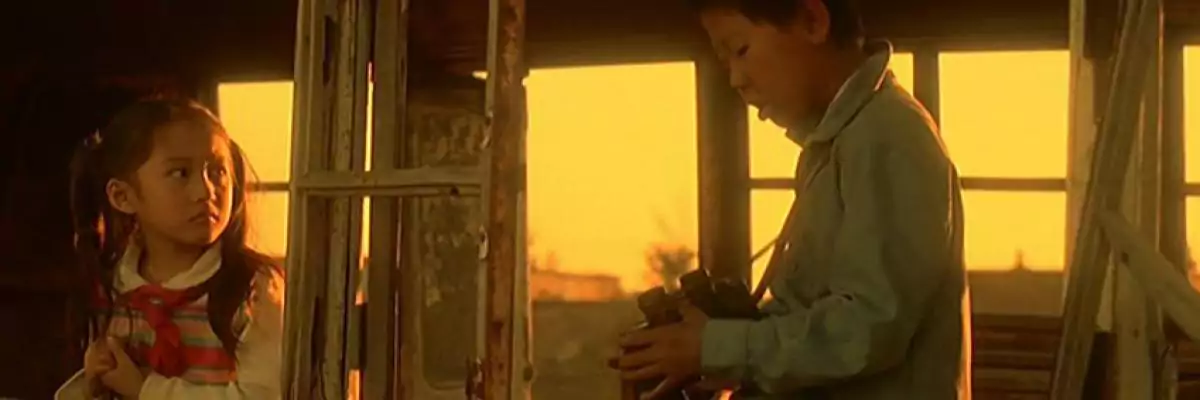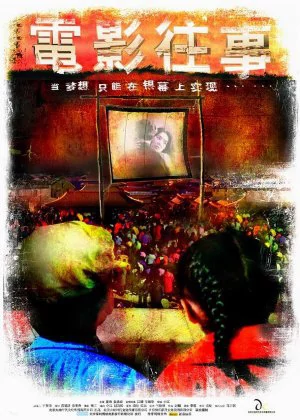Electric Shadows
When I first watched Jiang Xiao's Electric Shadows [Meng Ying Tong Nian] I liked it a lot, but it faded from memory rather quickly and last week all that was left was a daunting, confusing blank. That doesn't necessarily mean the film is flawed, my memory can be a bit fidgety from time to time, but it did result in me approaching the film with some reservations. Luckily that turned out to be unnecessary as Electric Shadows has more than enough qualities to justify a high rating, though having seen a lot of other Chinese films in the meantime did lower the overall impact just a little.

Well before Jiang Xiao made one of my all-time favorite Chinese films (pk.com.cn), he cooked up Electric Shadows. These two films have little in common though, unless you know exactly what to look for. Where pk.com.cn is very free-form and experimental, Electric Shadows has a more classical Chinese feel to it. It's a film that evolved from the work of Yimou Zhang, but does show some more modern touches in places. And it's these moments that make Electric Shadows stand out from the rest, even today.
You can think of Electric Shadows as a Chinese alternative to Nuovo Cinema Paradiso, a film that reminisces about the old days, combining drama, romance and a strong love for cinema. The structure and the themes of both films are eerily similar, even bordering on straight-up remake, but the era and setting of Electric Shadows makes for a very different experience. Still, people who liked Nuovo Cinema Paradiso will find a lot to love here.
The film starts with paperboy Mao Dabing running into a big pile of stacked bricks. From out of nowhere a girl (Ling Ling) assaults him, hitting him hard on the head with one of the scattered bricks. After treatment Mao is taken to the police station to deal with the girl, but to his surprise she asks him to take care of her fish while she spends her time in custody. When Mao visits her place, it dawns on him he might know the girl and a bunch of flashbacks reveal the history Mao and Ling Ling share together.

Visually speaking, the film is divided into two somewhat separate parts. The modern-day scenes look solid but not too spectacular, while the flashbacks are draped in an alluring sepia glow. The sepia color scheme is a rather easy fix to upgrade the visual presentation of a film, but Xiao does make smart use of the palette. It's not just a quick filter on top of the regular footage, instead it feels like the footage was tailored to make the sepia look its finest. And with the film being mostly flashbacks, the visual presentation is just overall pleasant.
The soundtrack is pretty simply, mostly consisting of soft, inoffensive music in the background. It does elicit a nice atmosphere and it makes for pleasant background noise to the drama, but you'll be hard-pressed to remember much of it once the film has finished. Chinese films tend to play it safe with the music and it often feels like little more than an afterthought, Electric Shadows fits that description perfectly. It's still preferred over horribly over-sentimental drab of course, but injecting the score with a bit more character wouldn't have hurt.
The acting is fine, but probably a little over the top, especially if you're not too familiar with Chinese cinema. That said, the kids do a tremendous job and even though Zhengjia Wang lays it on quite thick, he's an adorable little rascal. On top of that, his scenes with Haogi Zhang are pretty damn heart-warming. The borderline overacting may deter some people and it may not be too suitable for the more dramatic scenese, but it does add a lot to the uplifting spirit of Electric Shadows.

Most of the film is spend revelling in flashbacks, but towards the end the film switches back its original timeline. There are some twists and turns there that don't really add much to the film and at times Xiao tries a little too hard to be clever. While Electric Shadows could've done with a more concise, focused ending, I also have to admit there's nothing too offensive or destructive there either. It's just that it doesn't match the first part as well as it could've been.
Electric Shadows is a feel-good film that hits all the important marks. There is a little cruft near the end and some parts could've been streamlined a little better, but overall it's a sweet and endearing film that shows a deep love for cinema. It's a great first feature for Xiao, it's just a little disheartening to see he's only directed two feature films so far. He's clearly one of China's most promising directors, but he needs more films to showcase his talent. Electric Shadows is a film that's pretty ease to recommend (and availability isn't bad either), even to people not too familiar with Chinese cinema.
